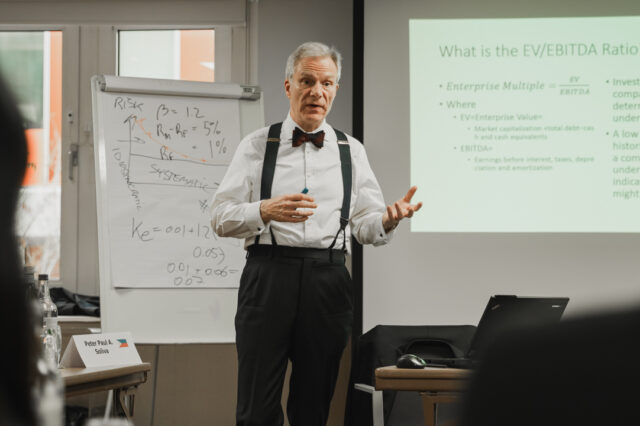Course Overview
This financial accounting course demonstrates:
- How the cash flow statement shows the cash inflows and outflows of an organization.
- How to apply management principles to the financial resources of an organization.
- How accounting is the system of recording financial transactions.
- The profit and loss (P&L) statement, which summarises the revenues, costs, and expenses incurred during a specified period.
By attending this course, you will understand:
- The part played by accounting in creating and monitoring strategy.
- The purpose of the balance sheet, which is to show the financial status of an organization at a specific point in time.
The course will wrap with a summary of the key learning points, followed by an action planning exercise with a view to apply the acquired knowledge and skills immediately upon your return to work. Post-course support is also available in relation to the implementation of your action plan, up to six (6) months following course completion.
Agenda
Accounting Basics
- Accounting concepts
- Steps in the accounting cycle
- The objectives of financial reporting
- Financial reporting standards
The Profit and Loss Statement
- Measurement of income
- Types of costs and expenses
- The many levels of profit
- Opex and capex
The Balance Sheet
- Constituents of the balance sheet
- The fundamental accounting equation
- Importance of working capital
- Exercise – prepare a set of accounts
The Role of Financial Accounting in Decision-making
- Key aspects of making a decision
- Limitations on the use of ratios
- The end of accounting?
Cash-flow Statements
- Cash is king!
- Understanding the sources and uses of cash
- The difference between cash flow and profit
- Exercise – Prepare a Cash Flow Statement
Financial Management
- Types of financial management
- Analysing financial statements
- Reporting to shareholders
- Creative accounting – managing policies and procedures
Strategic Accounting
- What is strategic accounting?
- The Balanced Scorecard
- Risk and Uncertainty
- decision-making about the future
The Changing Role of the Finance Function
- Improving people effectiveness
- Match finance roles to outcomes
- Monitoring finance function performance
Course Review
- Summary and recap of key learning objectives
- Action Planning
Target Audience
This Financial Accounting course is suitable for:
- New accounting staff who need to understand the financial accounting function holistically.
- Accountancy staff with no formal qualifications.
- Accountancy staff in pursuit of promotion.
- Accountancy staff who need to have a deeper understanding of accounting and how this can improve results.
- Anyone who wants to understand how the financial function relates to the general management of an organization.
Learning Outcomes
Upon completion of this Financial Accounting course, you will be able to:
- The links between accounting principles and the preparation of financial statements.
- Definitions of the content and functions of the two key financial statements.
- How to prepare a set of financial statements from scratch.
- Explain the relevance of cash flow and how it is reported.
- Define the function of financial management.
- Show how organizations use accounting to create and monitor their strategies.
- Implement an Action Plan at your workplace using the knowledge and skills acquired through the course.
Course Dates
Spaces limited to NINE (9) delegates per course. Book Now to avoid missing out!
Similar Courses
Financial Accounting Essentials
Duration: 5 days
Financial Accounting Essentials Workshop
Duration: 3 days
Financial Accounting Excellence
Duration: 5 days
Financial Accounting Excellence Workshop
Duration: 3 days
Advanced Financial Accounting
Duration: 2 weeks





